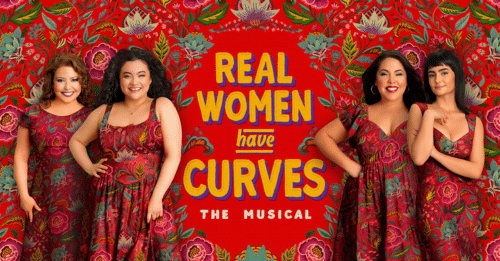Colman Domingo’s Historic Oscar Nomination: A Win for Underrepresented Afro-Latinos
Colman Domingo made with his historic Oscar nomination. But it’s not just about Colman. It’s a massive nod to all the Afro-Latinos who’ve been working their magic in the entertainment world, even though they haven’t always received the recognition they deserve.


On January 23, 2024, Colman Domingo made history by becoming the first Afro-Latino to be nominated for Best Actor at the Oscars. This comes after his powerhouse performance in the biopic “Rustin,” based on the life of Bayard Rustin, a dedicated activist for racial equality, worldwide democracy, and human rights. Rustin played a key role in organizing the 1960 Washington March with Martin Luther King Jr. Still, that role was greatly overlooked because he was marginalized for being an openly gay Black man.
Domingo also became the second openly gay man to be nominated for playing an openly gay character. In addition to his Oscar nomination, he was also nominated for Best Actor at the British Academy Film Awards (BAFTA), Golden Globes Awards, Screen Actors Guild Awards, African-American Film Critics Association Awards, and Satellite Awards.
As an Afro-Latino of Belizean and Guatemalan heritage, Domingo’s nomination is a huge win for the Afro-Latino community, especially in Hollywood. Afro-Latinos around the world are underrepresented and deeply misunderstood. This is clearly reflected in the entertainment industry, where most of the Latin stars most people know are racially white, white-passing, or lighter shades of brown. Names like Sofia Vergara, Salma Hayek, Pedro Pascal, and Oscar Isaac come to mind.
This is the work of the industry’s gatekeepers, who perpetuate a very specific, stereotyped, and narrow image of what Latinos look like. Afro-Latinos don’t fit that mold, so they’re consistently left out. When they are cast, they’re stripped of their Afro-Latinidad. Rather than playing Latino or Afro-Latino characters, they end up playing Black or mixed-race characters.

This has led to the erasure of Afro-Latino stories and representation in the entertainment industry. A study on Hispanic/Latino Representation in Film from the USC Annenberg Inclusion Initiative sheds light on this very issue. The study looked into 1,600 top-grossing films from 2007 to 2022, and it found that Latino representation hasn’t improved.
When Latinos are given prominent roles, they’re stereotyped as low-income immigrants, criminals, angry and temperamental people, and they’re also sexualized. The study also shows that Afro-Latinos are particularly ignored. It was found that among the top 100 movies of 2022, only one role was portrayed by an Afro-Latina. From 2007 to 2022, only 8 Afro-Latino actors had leading or co-leading roles. So, in 16 years, only 1% of roles went to Afro-Latinos.

The lack of stories that center on Latinos is staggering, and the lack of stories that center on Afro-Latinos is abysmal. This is not due to a lack of available Afro-Latino talent, but rather to a reluctance from the powers that be to invest in developing those stories or to allow the representation of Afro-Latinidad. This begs a change, and while that’s easier said than done, progress is being made.
A big part of that progress is creating consciousness and clarity around Afro-Latinidad in the industry. The pan-label “Latino” isn’t a race. The label attempts to encompass a wide range of races, ethnicities, and cultures and Afro-Latinos are a significant part of the Latino community. As this continues to be more widely understood, Afro-Latino actors and actresses continue to encourage this awareness and clarity by having important conversations about their identity and their experience in the industry.
While there’s still a lot of work to be done, the wave of Afro-Latino talent is rising, not just in television, but also in film. Afro-Latinos have always been there, making contributions to the industry. The issue is that they haven’t been allowed to claim those contributions, but the tides are changing. As such, the fact that the Afro-Latino community is finally showing up in the entertainment industry is worth celebrating.
Supporting and raising awareness for projects that represent Afro-Latino stories is just as important as supporting and celebrating Afro-Latino actors and actresses, even if their roles don’t exactly showcase Afro-Latinidad just yet. Stars like Colman Domingo, Zoe Saldaña, Gina Torres, MJ Rodriguez, Tessa Thompson, Rosario Dawson, and Alfred Enoch, among others, deserve to hold space in the industry.

Colman Domingo’s historic Oscar nomination is an encouraging sign of how the Afro-Latino community is making strides toward more visibility and building a larger stage for future generations to showcase Latinidad in all its unique shades.




